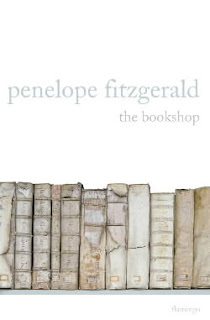I want one of these…

I’ve always respected the pig as a very noble beast, but a bit unwieldy for the suburban house. These miniature ones are the answer. If you could epitomise cuteness in a picture, this would be a contender.

I’ve always respected the pig as a very noble beast, but a bit unwieldy for the suburban house. These miniature ones are the answer. If you could epitomise cuteness in a picture, this would be a contender.

Another despatch from the department of the bleeding obvious. In other news: Pope confirms he is Catholic shock; Bears discovered defecating in woods horror.

Saw this on John Naughton’s blog. I couldn’t possibly comment.
When I found myself agreeing with what a high court judge said about daytime TV – and in particular Jeremy Kyle- I thought it was probably yet another indication, along with the gammy knee, of advancing years. Turns out it’s worse than the judge thought- and he called it bear-baiting. This account is actually quite shocking. In other news, I’m gearing up to asking a young colleague “who are the Arctic Monkeys?”
Good to know we are protected from attacks of the killer chillies…
Thanks to Anonymous for the tip. Here’s Taylor Mali with good advice for the folks at jobs.ac.uk
I was sent some publicity material by the academic jobs website jobs.ac.uk. One of the items is a calendar, on which is printed a series of patronising “tips”- sample tip for writing CVs: “Don’t use meaningless introductions”. Doh! THAT’s why I never got that vice-chancellor’s job!
My favourites, though have to be the number 1 and number 4 top tips for CVs:
1. Don’t apply for a job your not qualified for
4. Don’t forget to check for spelling and typos
My advice- don’t go to jobs.ac.uk for advice…
Serious stuff – but very clear. Difficult to argue with the man Ben Goldacre calls Dawkipoos…
To the Royal Exchange on Friday, for the award of the first Edge Hill Short Story prize organised by my friend and colleague Ailsa Cox, and presented by AL Kennedy. It was a very pleasant evening – wine was consumed, canapés eaten, shoulders rubbed with the famous. The prize was awarded to Mothers and Sons by Colm Toibin, who made a witty off the cuff acceptance speech, in the course of which he used the throwaway line, “anyone can write a novel”. Up to a point, I think…
The associated conference took place the following day, and went well. Two of the short-listed authors, Tamar Yellin and Nicholas Royle, read from their work in between academic papers and experimental pieces. The rain mostly held off, and the Edge Hill ducks performed well, eliciting coos of delight from visitors.

I wrote a book chapter about Penelope Fitzgerald’s Offshore, and have been working my way through her oeuvre ever since. On a recent trip to Aldeburgh, what could be more appropriate than to pick up in the delightful bookshop there, Fitzgerald’s novel of one woman’s attempt to run a bookshop in a fictional coastal east Anglian town?
Like all her other novels, this is a bittersweet joy. The widow Florence Green decides that Hardborough (a fictional amalgam of, as far as I can make out from my limited experience of Suffolk, Aldeburgh and Dunwich)needs a bookshop, and she sets about converting a semi-derelict old house into one. The novel’s action – and, as is the case with PF’s other novels, there isn’t much- revolves around the town’s increasingly devious attempts to sabotage her enterprise. The late-fifties small town atmosphere is conveyed with precision, but with no apparent literary flourishes. As A.S. Byatt says, “how does she do it?” The venal Milo North, the snobbish Mrs Gamart and the misanthropic Mr Brundish are all convincingly drawn denizens of the town. My favourite character, though, was Florence’s ten-year old assistant, Christine Gipping, another one of Fitzgerald’s wise and prematurely old children.
The house is haunted by a rapper (and mercifully, this is a not a misogynistic gangster, but a dialect term for a poltergeist), whose presence punctuates the plot at key moments. There’s a wonderful comic set piece scene where Florence decides that the town needs to be exposed to Lolita, and thus hardens the determination of her opposition. It seems slight – you could read it in one sitting – but like Fitzgerald’s other works, it remains with you, because it has the ring of authenticity.
By the way, what an example for budding novelists- Fitzgerald didn’t start writing novels until she was sixty, but still managed a Booker prize, two nominations, and a fanatically devoted following, of whom I am one.